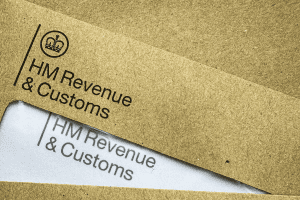As an employer, providing benefits to your employees can be an excellent way to attract and retain talent. It also provides rewards to outstanding team members.
It’s important to know how these benefits affect your taxes. You also need to learn how to report them with P11D forms.
Here is J Sweeney Accountants’ guide to everything P11D.
What is a P11D form?
A P11D is a form UK employers use to report taxable benefits and expenses for employees and directors. Each employee who receives taxable benefits must submit it yearly to HM Revenue and Customs (HMRC).
What are some common benefits reported on P11D?
Some of the typical taxable benefits and expenses that need to be reported on a P11D include:
• Company cars or vans
• Private healthcare
• Interest-free loans (e.g., season ticket loans)
• Relocation allowances
• Mileage and fuel allowances
• Vouchers or credit cards
• Professional fees and subscriptions
When are P11Ds due?
The P11D filing deadline is July 6th following the end of the tax year. For instance, the P11D forms for the tax year 2023-24 should be filed by July 6, 2024. It’s important to note that as of the 2023/24 tax year, P11D forms must be submitted online only, as part of the Government’s Making Tax Digital (MTD) program.
What are the penalties for late or incorrect submissions?
Failing to file your forms on by the P11D deadline can result in penalties. Employers can face a £100 fine for every 50 employees each month or part month that they submit the P11D form late. Additional penalties may apply for incorrect filings, especially if errors appear to conceal information rather than being simple mistakes.
What are Class 1A National Insurance Contributions (NICS)?
In addition to the P11D form, employers must also complete a P11D(b) form. This calculates the Class 1A National Insurance contributions (NICS) due on certain benefits. The payment deadline for these Class 1A NICS is July 22nd.
Payrolling benefits
It’s worth noting that if you choose to ‘payroll‘ benefits (i.e., tax them along with employees’ regular pay), these benefits do not need to be recorded on a P11D form. This can simplify the reporting process and will become a requirement soon.
Tips for smooth P11D submissions
- Start early: Begin gathering information well before the deadline to avoid last-minute rushes.
- List all benefits: Create a comprehensive list of all benefits provided to employees.
- Gather annual values: Determine the total cost of each benefit for the tax year.
- Don’t forget leavers: Include benefits information for employees who left during the tax year.
By understanding P11D requirements and planning ahead, you can ensure accurate reporting of employee benefits and avoid potential penalties. Remember, while providing benefits can be a great way to support your employees, it’s equally important to manage the associated tax.
If you’re looking for an expert accountancy team to help you ensure your business’s compliance, contact the J Sweeney team on 01604 950034 or email [email protected].




